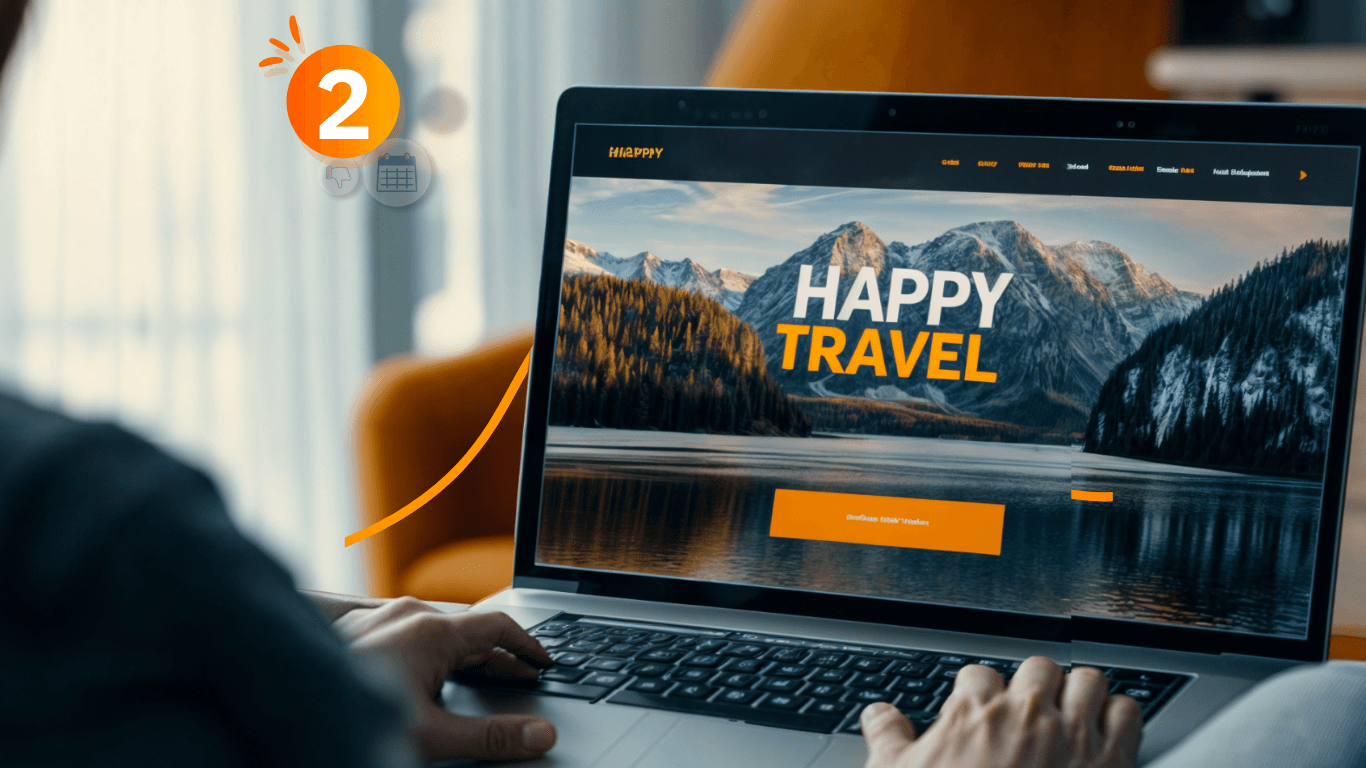


As we approach 2025, our latest shopper research sheds light on the evolving expectations of UK travellers. The findings reveal significant shifts in how consumers approach travel planning, budgeting, and inspiration. For travel brands, these trends highlight the need for adaptation, innovation, and customer-centric strategies to remain competitive in an ever-changing landscape.

Travel influencers may dominate Instagram and YouTube feeds, but their impact on travel decisions is waning. Only 11% of consumers plan to rely on influencer recommendations for trips in 2025, and even among younger audiences aged 18–24, less than a quarter are influenced by their suggestions.
The main challenge lies in affordability and transparency. Nearly two-thirds of consumers feel influencer-promoted destinations are out of their price range, with some reporting gaps reaching thousands of pounds. Additionally, 23% say these recommendations lack clarity on costs, making them feel unattainable.
For travel brands, this is a wake-up call: aspirational content must also feel achievable. Highlighting affordable options and offering transparent pricing can help bridge this gap, ensuring that audiences feel empowered, not excluded, by travel marketing.

Longer running conventions of the industry are also drawn into question by the findings. The first Saturday after the festive period, nicknamed Sunshine Saturday by the UK travel industry, has traditionally been a peak booking day. Last year, January saw nearly 2.2 million sector transactions, according to Nationwide. However, just 7% of respondents express they typically book in January; it’s clear that the scale of opportunity for travel brands throughout the rest of the year is enormous.
This year-round spontaneity requires travel brands to adapt their marketing strategies. Seasonal campaigns remain important, but businesses must also maintain a constant presence and readiness to engage with customers whenever they decide to book.
As Elliott Clayton, Managing Director, International at Epsilon, explains: "These insights reflect a broader theme—UK travellers are looking for affordable, accessible, and transparent travel options tailored to their unique needs. With influencer-driven content falling short on budget realism and consumers exploring a wide variety of travel inspiration sources, travel brands should aim to meet their audience across multiple channels. Adapting to these expectations with personalisation, transparent pricing, and an omnichannel presence could prove crucial for driving loyalty and securing those all-important word-of-mouth recommendations.”

With approaching half (43%) of travellers saying when they book now hinges on the specifics of the trip, the data highlights 13 distinct channels influencing travel inspiration that marketers need to factor into their yearly plan.
Travel agents (20%) remain as popular as TripAdvisor (20%), reflecting the value placed on both personalised guidance and user reviews. Similarly, Reddit (11%) matches the influence of social influencers (11%), showing that anonymous, unfiltered advice resonates just as much as curated content.
For most demographics, traditional media continues to outperform some digital tools, with travel magazines and articles (17%) and TV adverts (14%) outpacing mobile apps for travel planning (12%).
The exception to the rule is of course 25–34-year-olds. Niche sources like AI-driven recommendations and virtual reality experiences are gaining traction. Though this audience also continues to engage with traditional mediums like direct mail, proving the value of a truly omnichannel marketing approach.
These findings reveal that travellers seek a balance between trust, variety, and expertise, valuing personal recommendations (46%) alongside visually engaging and candid advice. For brands, the key is working out which channels matter for your audience while combining personal connections, storytelling, and trusted content.

Planning a holiday is no small feat, and UK consumers report spending significant time on unexpected tasks. 39% of respondents feel they spend too much time hunting for the best discounts, while another 26% spend hours cross-referencing hotel and flight options across different platforms. Other challenges include:
For travel brands, there’s a clear opportunity to streamline these processes. By offering comprehensive booking platforms, pre-packaged activity recommendations, or tools that simplify logistical hurdles, companies can save consumers time and enhance their overall experience.

As we look to 2025, cost-effective and exploratory travel dominate consumer priorities. Over a third (33%) of travellers are opting for budget-friendly options, while 24% are seeking out lesser-known destinations. Additionally, 29% are prioritising activity-focused trips, valuing memorable experiences over luxury accommodations.
Spontaneous and independent travel is also on the rise, with 24% favouring last-minute trips and 19% embracing solo adventures. This growing appetite for flexibility underscores the need for personalised offerings that cater to diverse traveller preferences.
The travel industry in 2025 is being reshaped by affordability, flexibility, and a desire for meaningful experiences. From the decline of influencer-driven content to the rise of omnichannel inspiration and spontaneous bookings, these trends point to an increasingly discerning and independent traveller.
For travel brands, the path forward lies in meeting these shifting demands with agility and creativity. Transparent pricing, a seamless booking experience, and personalised marketing are no longer optional but essential. By adapting to these changes and prioritising customer needs, businesses can foster deeper loyalty and thrive in a competitive market.
Ultimately, what travellers want in 2025 is clear: they seek brands that understand their needs, respect their budgets, and deliver experiences that resonate long after the trip is over. The question is, will your brand be ready?